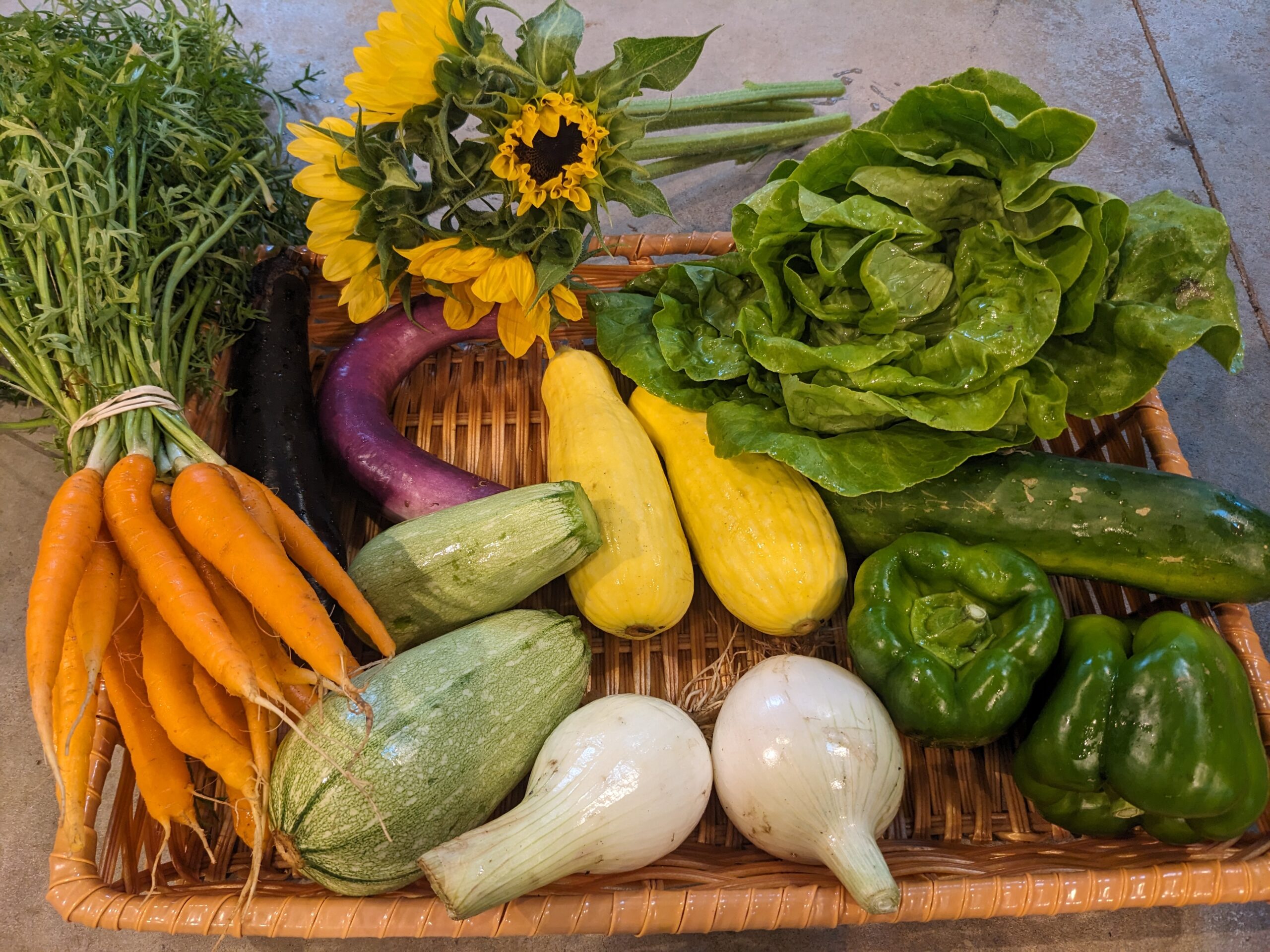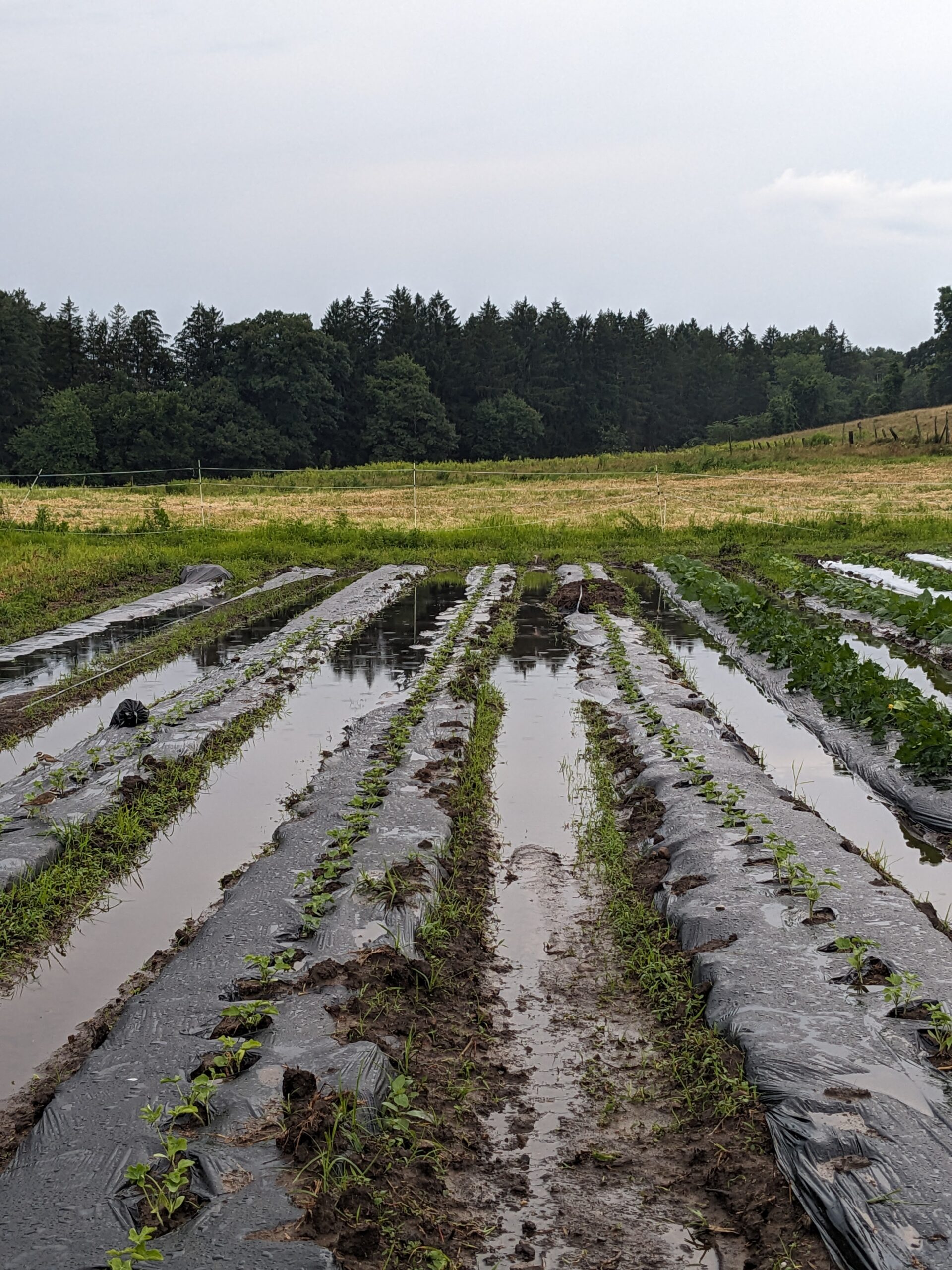Katy Perry’s song Hot and Cold has been stuck in my head since May. “You’re hot and you’re cold, you’re yes and you’re no, you’re in and you’re out, you’re up and you’re down.” Her lyrics are the perfect words to describe the anomalies of this growing season. In mid-April, we had a heat wave where our cool season crops were very confused by the 90-degree temperatures. In late May, our newly planted heat loving crops were very confused by the 38-degree temperatures. During the late frost, our peas were damaged but luckily pulled through in time for Week 2 through 5 of the CSA share. Also due to the late frost, we had to delay our planting of tomatoes which is why they are coming on later this year. Late Spring’s challenging weather passed the baton to early Summer where we experienced record breaking rainfalls and hot temperatures.
Needless to say, this growing season has been challenging. Many of you have been asking how this whacky weather is impacting our crops. Here’s how…
Heavy and frequent rainfalls: Some of our fields are flooding. We are nowhere near the devastating level that many farms in Western, MA and Vermont are experiencing, and I am grateful for that. There will be inevitable crops losses in our flooded areas as plants sitting in water for too long will rot. During the frequent rainfall, it has been difficult to find a window of time where it is dry enough to cultivate our fields (removing weeds with a tractor) and prepare beds for planting. In addition to growing weeds, rain can also bring plant diseases that travel or manifest in moist conditions.
Heat Waves: We lost a succession of cucumbers a few weeks ago and we lost half of our cherry tomatoes. Both losses were due to stem necrosis during a heat wave in June. Stem necrosis is the dying of plant cells on the stem. There will still be plenty of both crops in your CSA’s so don’t you worry! Continued heat will impact the quality and quantity of harvests as periods of high heat can cause heat stress. In some crops heat stress looks like yellowing leaves or bolting, a process in which plants quickly produce seeds as a survival tactic. Crops that have bolted usually do not taste good and are no longer marketable. In fruiting crops such as tomatoes, eggplants, cucumber, squash, and peppers, heat can lead to flower drop. This is an issue since fruits are born from these flowers. Therefore, when flowers drop that means less fruit in the future.
Please note, crop losses are not unique to this season and none of the challenges of this season are new challenges. In fact, I have learned to prepare for increasing rates of floods, droughts, and extreme heat as we feel the impacts of climate change more. Every season, farmers including myself, plan for inevitable crop losses. When I make my crop plans, I plan for 10-20% loss on most crops so that when we do have some crop loss, the impact doesn’t feel so devastating.

